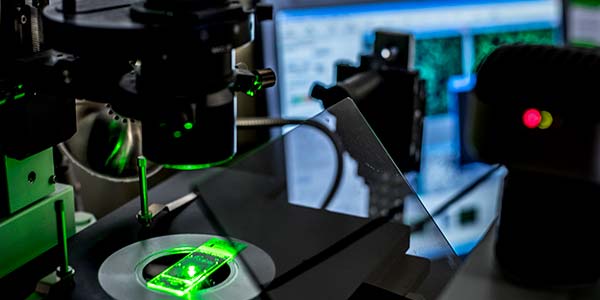The Bachelor of Science in Bioengineering program offered by UW Bioengineering is accredited by the Engineering Accreditation Commission of ABET, under the commission’s General Criteria and Program Criteria for Bioengineering and Biomedical and Similarly Named Engineering Programs
The graduates of the UW Bioengineering program will be able to do the Following:
- Earn advanced degrees and/or obtain employment in bioengineering-related fields, such as medicine, device development or biotechnology
- Advance their careers by obtaining appropriate educational and professional qualifications
- Serve their profession and community
- Contribute to responsible development of new technical knowledge
- Take leadership roles as individuals or in teams to address domestic or global bioengineering-related issues
ABET Learning Outcomes
Engineering programs must demonstrate that their graduates have:
- An ability to identify, formulate, and solve complex engineering problems by applying principles of engineering, science, and mathematics
- An ability to apply engineering design to produce solutions that meet specified needs with consideration of public health, safety, and welfare, as well as global, cultural, social, environmental, and economic factors
- An ability to communicate effectively with a range of audiences
- An ability to recognize ethical and professional responsibilities in engineering situations and make informed judgments, which must consider the impact of engineering solutions in global, economic, environmental, and societal contexts
- An ability to function effectively on a team whose members together provide leadership, create a collaborative and inclusive environment, establish goals, plan tasks, and meet objectives
- An ability to develop and conduct appropriate experimentation, analyze and interpret data, and use engineering judgment to draw conclusions
- An ability to acquire and apply new knowledge as needed, using appropriate learning strategies.
Program Criteria
Additionally, The structure of the curriculum must provide both breadth and depth across the range of engineering and science topics consistent with the program educational objectives and student outcomes.
The curriculum must prepare graduates with experience in:
- Applying principles of engineering, biology, human physiology, chemistry, calculus-based physics, mathematics (through differential equations), and statistics;
- Solving bio/biomedical engineering problems, including those associated with the interaction between living and non-living systems;
- Analyzing, modeling, designing and realizing bio/biomedical engineering devices, systems, components, or processes; and
- Making measurements on and interpreting data from living systems



